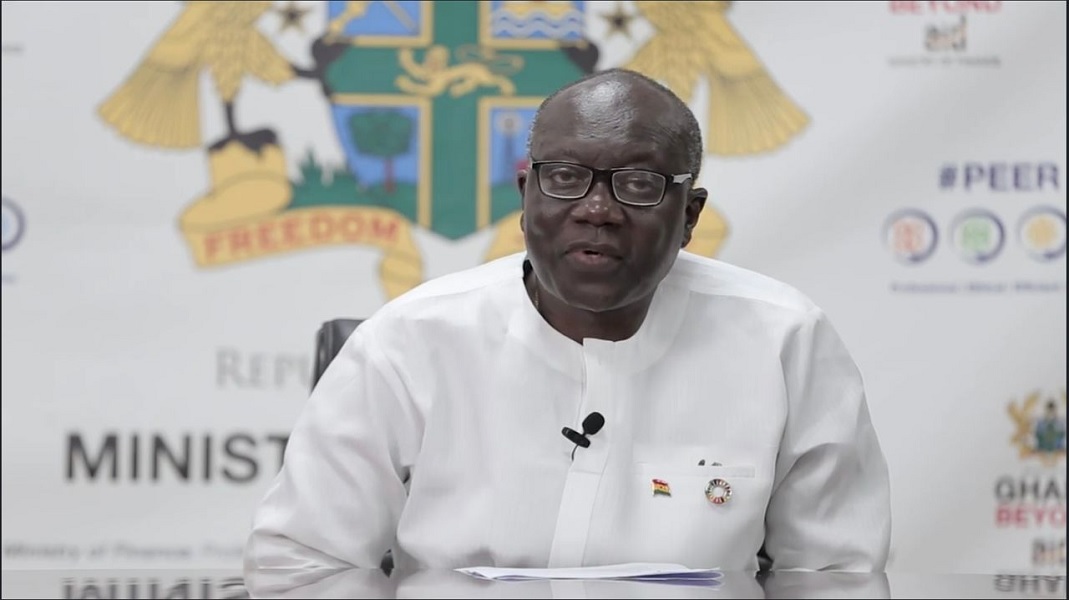The government has suspended temporarily the payment of selected external debts to entities that have lent money to the country.
The category of debts includes dollar-denominated bonds issued on the international market (Eurobonds), the country’s commercial term loans and most of its bilateral debts and debts mostly granted by friendly countries to Ghana.
It is to enable the government to again restructure the varied Eurobonds and the commercial loans on the country’s books, including those of state-owned enterprises, to make them more orderly and their servicing sustainable.
A statement issued by the Ministry of Finance yesterday said holders of the affected debts would be engaged in due course in order to be presented with restructuring proposals for their consideration.
It, however, stressed that the suspension would not affect the repayment of multilateral debts — loans procured from large institutions that lend to countries, such as the World Bank and the International Monetary Fund (IMF), the African Development Bank (AfDB), the European Development Bank, the Organisation for Economic Cooperation and Development (OECD) and the United Nations Development Programme (UNDP).
It would also not affect all types of new debts contracted after yesterday or debts related to certain short-term trade facilities, it added.
“We are also evaluating certain specific debts related to projects with the highest socio-economic impact for Ghana which may have to be excluded.
“This suspension is an interim emergency measure, pending future agreements with all relevant creditors,” the statement explained.
Rationale
The suspension is to enable the government to restructure the external debts to make their servicing sustainable, while providing some leeway for government finances.
It is part of a raft of emergency measures to prevent a further deterioration in the economic, financial and social situation in the country.
Engagement
The statement added that the government was ready to engage in discussions with all its external creditors to make Ghana’s debt sustainable through a fair, transparent and comprehensive debt restructuring exercise, in line with international best practices.
“The Ministry of Finance will hold an investor presentation at a date to be announced at a later stage,” it said.
Receiving the buy-in of the country’s creditors is one of the cardinal conditions precedent to securing the approval of the management and the Executive Board of the IMF for Ghana’s extended credit facility programme with the fund.
The statement explained that the financial resources of the country, including the Bank of Ghana’s international reserves, were limited and needed to be preserved at this critical juncture.
Background
The government secured an IMF staff-level agreement on December 13, this year for a financing programme aimed at restoring macroeconomic stability and debt sustainability and preserving financial stability, while protecting the most vulnerable.
Prior to that, the Ministry of Finance had launched a Domestic Debt Exchange Programme and invited institutional domestic debt holders to voluntarily exchange them for four new bonds that would mature between 2027 and 2037.
While the principals of the domestic bonds would be paid in full on maturity, no coupon (interest) rate will apply or be paid next year, but five per cent would be paid on all four beginning 2024, up to 10 per cent in 2025 and until maturity.
By the last check last Monday, five days to the deadline for the voluntary submission of bonds, the Daily Graphic found out that no investor had taken the government’s offer, which was launched on Monday, December 5, this year.
At the launch of the debt exchange, the ministry had said details on the external debt would be announced later, the first of which is the suspension of servicing of selected debts.
Update
The objective of the debt restructuring is to reduce the country’s current debt burden and its servicing implications on the economy.
It is also to create a much more orderly, transparent, efficient and expedited manner critical to restoring macroeconomic stability and debt sustainability.
Providing updates on the economy yesterday, the Minister of Finance, Ken Ofori-Atta, said the government team had continued to dialogue extensively with various stakeholders, including regulators and representatives across the pension funds, banking, asset management and insurance sectors.
“We have discussed with them the rationale behind the domestic debt exchange programme, understood their perspectives and taken their feedback,” he said.
He said the staff-level agreement with the IMF had already started yielding results, shown through the cedi appreciation.
Mr Ofori-Atta urged Parliament to support the gains made with the passage of the Appropriations Bill for the 2023 fiscal year.
“We also urge Parliament to support in particular new revenue measures outlined in the 2023 budget which aim to improve revenue mobilisation. We cannot afford to repeat the mistakes of 2022,” he said.
Source: Graphic Online

